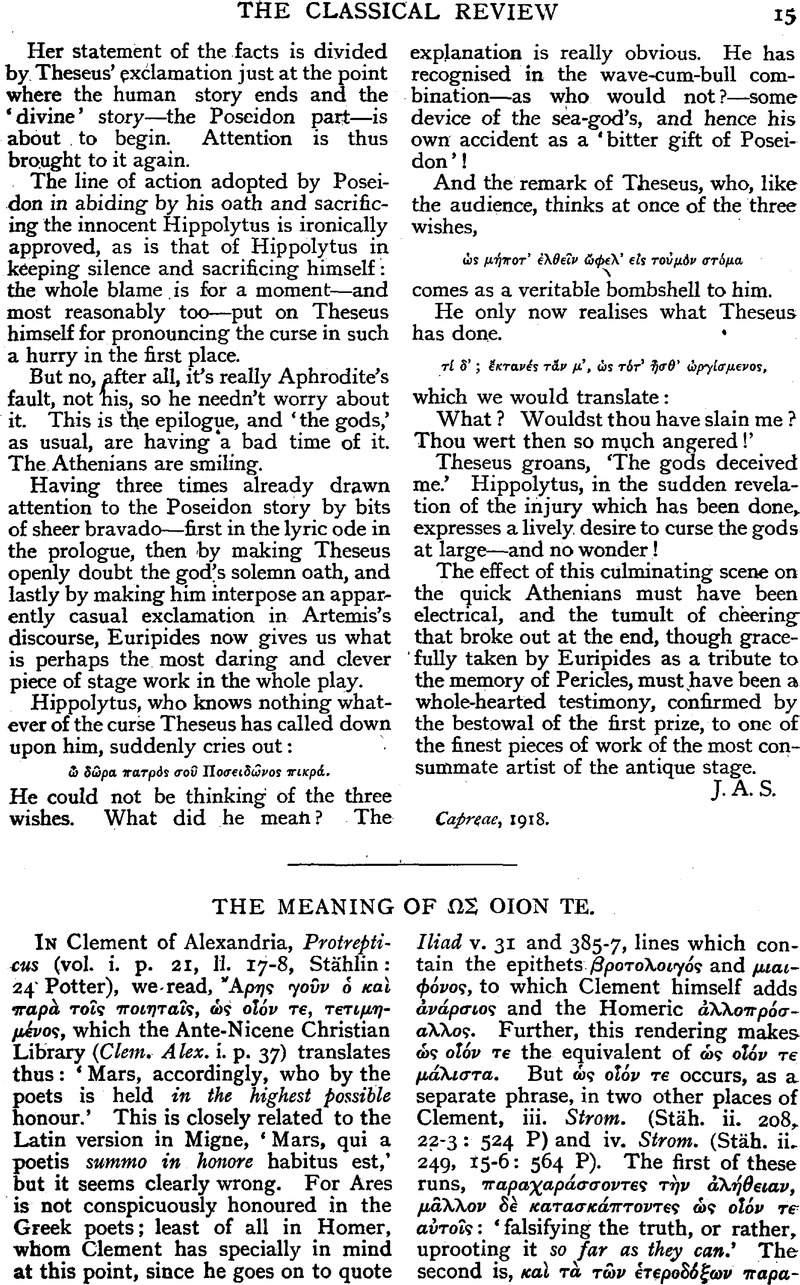No CrossRef data available.
Article contents
The Meaning of ΩΣ ΟΙΟΝ ΤΕ
Published online by Cambridge University Press: 27 October 2009
Abstract

- Type
- Original Contributions
- Information
- Copyright
- Copyright © The Classical Association 1919
References
1 So Charon in the next sentence: ![]() ;
;
2 An illustration of Clement's dependence on Plato will be found in my article on ‘Clement of Alexandria's Protrepticus and the Phaedrus of Plato’ in the Classical Quarterly, October, 1916.
3 λ⋯γειν or εἰπεῖν τ⋯ β⋯λτιδστα is Common throughout Demosthenes. Apart from the instance under consideration, τ⋯ ἄριστα or τἄριστα occurs four times in the De Corona, but not elsewhere. Demosthenes uses it in these places with πρ⋯ττειν, not with λ⋯γειν or εἰπεῖν. But that the distinction is of the slightest is shown by De Corona 57, ![]() , which is followed in 59 by
, which is followed in 59 by ![]() . In Chersonesus 75 Demosthenes may well have departed from his usual custom, both for the sake of variety, and, more especially, because he is here maintaining that the orator's words are a necessary part of the citizens' act (
. In Chersonesus 75 Demosthenes may well have departed from his usual custom, both for the sake of variety, and, more especially, because he is here maintaining that the orator's words are a necessary part of the citizens' act (![]() ). When words are regarded as deeds, the speaker may fitly adopt for the one the construction that he usually reserves for the ofter.
). When words are regarded as deeds, the speaker may fitly adopt for the one the construction that he usually reserves for the ofter.


